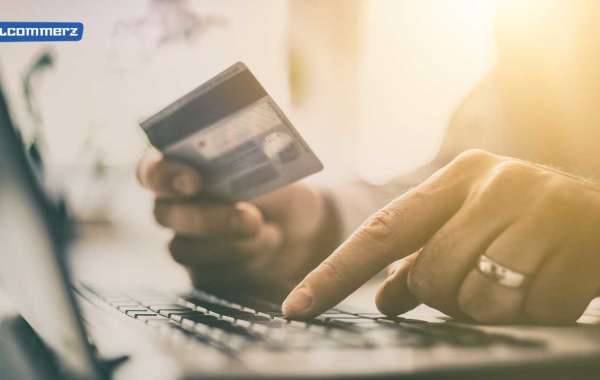Nowadays, Akash has set up a full-fledged online transaction platform with delivery facility for his store. Over the years, it has moved from cash payments to card payments and now uses a seamless Payment Gateway on its website, which allows it to offer a smooth payment process.
This is the story of millions of SMEs growing in India!
In a recent global survey* that was conducted, it was found that 62% of Indian small businesses use a website, e-commerce or e-commerce platform as their main sales channel, with half or more of their revenue coming from online sales!
With India's e-commerce market projected* to be $111 billion by 2024, if you're also on your way to starting an online business, here's everything you need to know about payment gateways.
What is a payment gateway?
A payment gateway is an intermediary technology that allows businesses to accept payments from customers online. It acts as a bridge between your customer's bank and your website, essentially handling the technical aspects of end-to-end payment processing. Simply put, payment gateways enable your customers' payment solution providers to be fast, efficient and secure.
Payment Gateway: A digital journey for online transactions
Let's say a customer would like to buy handmade home decor from the Akash store mentioned in the story above. The customer logs into the app or website and finds the item they were looking for. Delighted to have found it, they add it to their cart and click the Buy button, moving one step closer to checkout. It is at this stage that the Payment Gateway comes into play.
Here's a step-by-step how the payment gateway process works:
The gateway will ask the customer's bank to verify that they have sufficient balance in their account to complete the payment.
After receiving approval from the bank, the payment is authorized to complete.
Next, the Payment Gateway notifies the merchant that the balance is available and the order can be successfully placed.
The cost of the item is deducted from the customer's account and sent to your account.
Payment gateways are largely used by e-commerce or service apps and websites and are an essential part of online shopping. They provide customers with a safe and convenient way to pay for goods and services online.
Payment gateways facilitate secure online payments
When it comes to online payments, security is a top priority. Payment gateways ensure that security measures are in place to protect both customer and merchant data. The safety provisions are twofold:
Encryption: Payment gateways encrypt customer data before further processing. This ensures data protection and security against fraudsters who could steal the data.
Fraud prevention: Payment gateways use fraud prevention tools to proactively identify and block all possible fraudulent transactions.
What role do payment gateways play in the business ecosystem?
Payment gateways play an important role in the business ecosystem by helping businesses accept payments from customers digitally, which can help increase sales and revenue. Payment gateways also make it easier for businesses to reach a wider audience as they can be used to accept payments from customers around the world.








